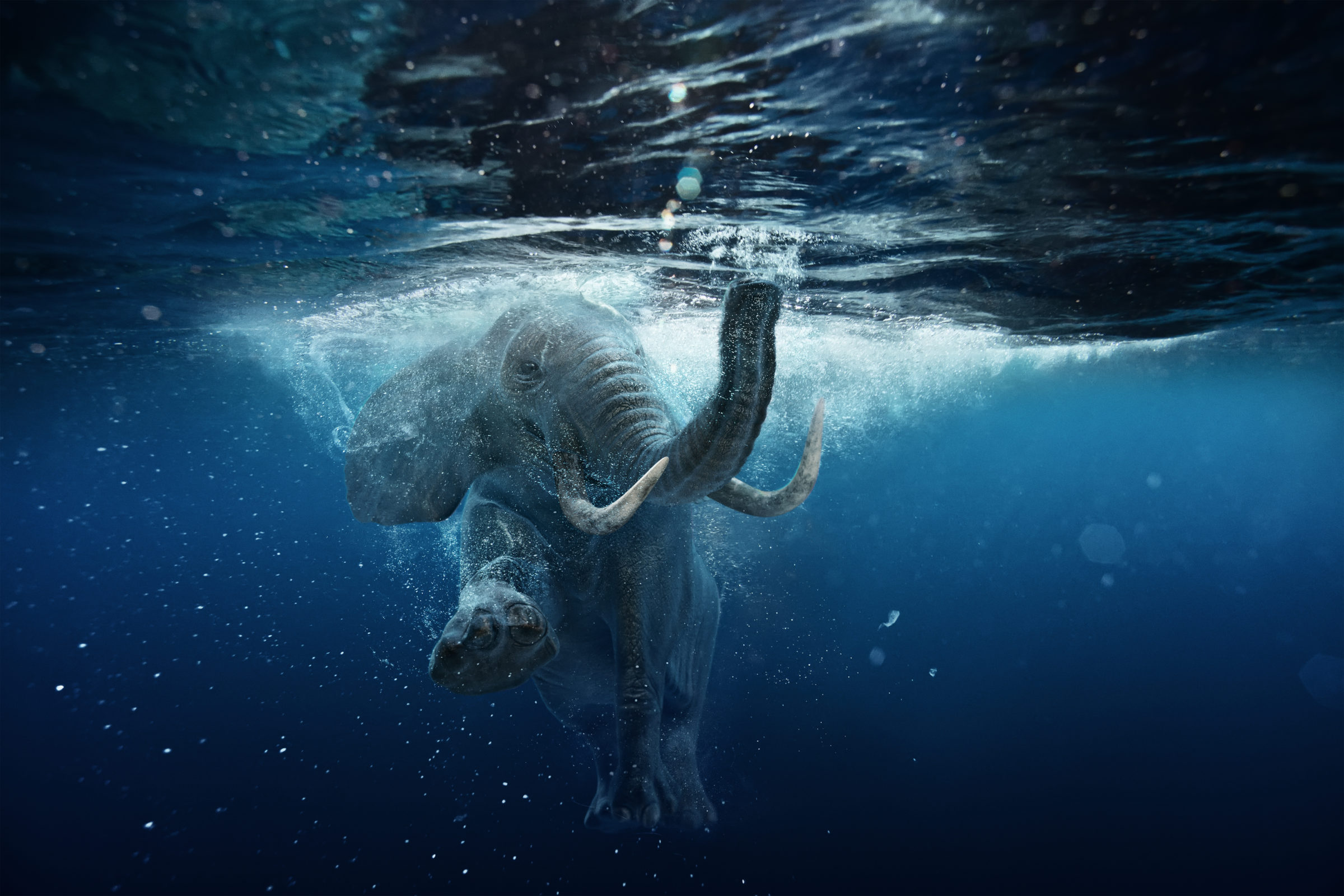NO to ‘Elephant Rights’ and ‘Water Rights’
Originally published at The Epoch TimesThe anti-humanists are on the march! Today, I want to discuss subversive advocacy campaigns to expand rights from the human realm to animals, and indeed, the rest of the natural world.
One of the most important examples is currently pending in New York. “Happy,” an elephant, has sued for a writ of habeas corpus to be liberated from the Bronx Zoo and placed in an elephant sanctuary as a matter of “elephant rights.”
If Happy “wins” she — and hence, all pachyderms — would be declared non-human “persons” entitled to rights akin to those possessed by legally incompetent humans. In other words, elephants wouldn’t have the right to vote. But they would have the rights not to be owned or treated in an instrumental way, just as we currently protect children, the developmentally disabled, and those with dementia.
In a sane world, the case would have already been thrown out of court and the lawyers sanctioned for filing a frivolous lawsuit. But we live in intellectually vacuous times. The New York Court of Appeals—the state’s highest court — recently accepted Happy’s appeal from lower court losses. This is the first animal lawsuit of its kind to get so far. If a majority of the seven jurists rule that Happy is entitled to nonhuman rights, the world will be turned upside-down.
The signs are not good. Associate Judge Eugene M. Fahey, one of the judges who will be deciding the case, already authored a non-binding opinion in a similar earlier case involving chimps—also brought by the NonHuman Rights Project—in which he opined, “To treat a chimpanzee as if he or she had no right to liberty protected by habeas corpus is to regard the chimpanzee as entirely lacking independent worth, as a mere resource for human use, a thing the value of which consists exclusively in its usefulness to others.”
If Judge Fahey thinks chimps deserve rights, he is likely to believe that elephants do too. That means Happy only needs three more judges to make history.
What’s that, you say? Animals don’t know anything about “law,” much less courts? True. But logic and rationality are beside the point. Animal rights is an emotionally driven movement that seeks to prohibit all ownership of animals.
Its adherents “feel” — rather than think — that cattle ranching is equivalent to slavery and using leather products is akin to Auschwitz.
Thus, PETA stated in its notorious “Holocaust on Your Plate” campaign several years ago, “The leather sofa and handbag are the moral equivalent of the lampshades made from the skins of people killed in the death camps.”
That wasn’t an obnoxious metaphor. The animal rights movement literally believes that we should judge that which is done to animals as if the same thing were being done to humans.
Nothing would advance their long march toward human/animal equality as allowing animals to sue their owners—an advocacy thrust known as “animal standing,” of which Happy’s case is merely one example.
Of course, the animals wouldn’t actually be doing the suing. They would be oblivious. Rather, animal standing would enable animal rights fanatics to impose their ideology on society via court diktat.
Radical environmentalists are pursuing similar means in their drive to “save the planet” from us. Toward this end, radicals are gathering petition signatures to place the “Florida Clean Water Act” on the state’s ballot.
Despite its benign title, the measure isn’t really about keeping water clean. Rather, it would grant constitutional rights to water. Yes, you read right. The proposed constitutional amendment states that all “Florida waters have a right to clean water, and that right shall include the rights of those waters to exist, flow, be free from pollution, and maintain a healthy ecosystem.
The measure defines “water” so broadly it includes just about everything that is wet except swimming pools, including, “all rivers, lakes, streams, springs, impoundments, wetlands, and all other waters or bodies of water.”
Granting “rights” to H2O in Florida would thus prevent most human uses or changes in the state’s water resources. For example, the right to “exist” would, among other likely scenarios, prohibit swamps from being drained. Similarly, the right to “flow” would seem to prohibit flood control projects, and other diversions of natural waterways.
And get this howler: “The rights secured in this section shall not be interpreted to confer liabilities, duties, obligations, or responsibilities on waters.” In other words, the water could sue you to prevent a flood control project, but you could not sue the water after a flood destroyed your home. That illustrates the insanity of the entire “water rights” proposal.
And here’s the truly dangerous part. As with animal standing, anyone in the state would be empowered to enforce the “rights” of water in court. That means the most fanatical environmentalists would be entitled to bring lawsuits to thwart any water project to which the radicals objected. And since there is no grandfather clause, it could also mean that existing water projects would be vulnerable to legal attack.
Anti-human advocacy such as Happy’s lawsuit and the proposed “water rights” amendment are dangerous. Only human beings and our associations are entitled to rights because only we can assume responsibilities.
Moreover, if animals, water, and other aspects of the natural world, have rights — yes, “nature rights” is also a thing — that means everything does, from mushrooms, to mosquitoes, to streams and rock outcroppings, to jelly fish, and pond scum. That would be a recipe for chaos and would devalue rights in the same way a wild inflation does currency.
So, yes to human duties — including the humane care of animals and engaging proper environmental practices. But an emphatic no to nonhuman rights. Because if we ever come to perceive ourselves as just another animal in the forest, that is precisely how we will act.
